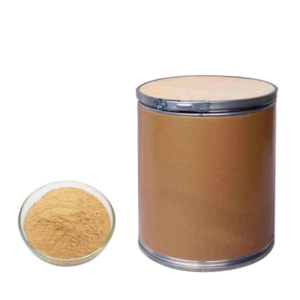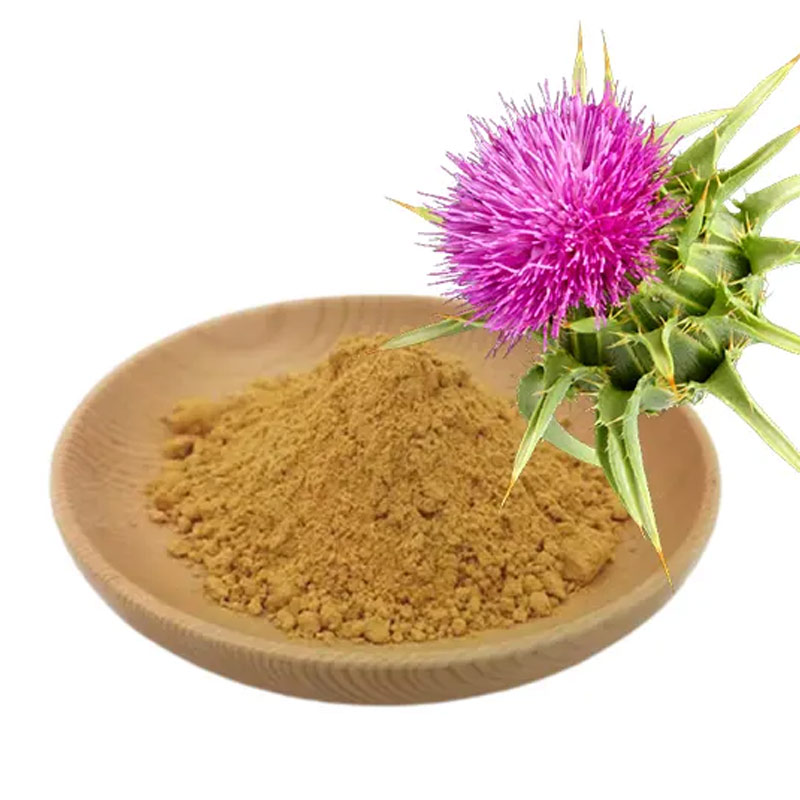silymarin
-Plant extracts
Product information

| Product Name | Silymarin |
| CAS | 22888-70-6 |
| Melting point | 164-174°C |
| Boiling point | 793.0±60.0 °C(Predicted) |
| Density | 1.527± 0.06g /cm3(Predicted) |
| Storage conditions | -20°C |
| Solubility | stable. Incompatible with strong oxidant and alkali. |
| Morphological | Solid |
| Acidity coefficient (pKa) | pKa 6.42±0.04 (Uncertain) |
| Color | Light yellow low |
| Purity | 98% |
| Shelf life | 2 years |
Intro of Silymarin
Silybin (C25H22O10) is a flavonoid lignan substance, light yellow solid powder. It also has three other isomers, isosilybin, silydianin and silychristin. Among them, silybin is the most common and bioactive substance, and has a wide range of pharmacological activities such as anti-tumor, cardiovascular protection and antibacterial.
Efficacy and effect of Silymarin
Silymarin can make liver injury model animals have the characteristics of resistance to hepatotoxic substances, and can restrict the entry of alpha-amanicin (hepatotoxic substances) into cells; It has antioxidant activity; It can normalize phospholipid metabolism by promoting protein synthesis in damaged hepatocytes. It can induce the activity of RNA polymerase I in the nucleus. After absorption through the digestive tract, silybin is mainly excreted with bile (more than 80% of the total absorbed). Baisfu Silybin is helpful for stabilizing liver cells, protecting liver, and excreting liver toxins. It also has pharmacological effects such as improving cognitive impairment, protecting brain ischemia-reperfusion injury, and reducing pulmonary hypertension.
Chemical property
Silymarin soluble in acetone, ethyl acetate, methanol, ethanol, slightly soluble in chloroform, almost insoluble in water. It is a flavonoid lignan compound extracted from the seed coat of milk thistle, a medicinal plant in the asteraceae family.
Use
It has obvious liver protection effect and is suitable for acute and chronic hepatitis, early cirrhosis and so on.
In vitro study
Silybin is A mixture of the approximately equal molar ratio of the enantiomers silibinin A and silybinin B. Both in vitro and animal studies have shown that silybin has a hepatoprotective effect (anti-hepatotoxicity), protecting liver cells from toxin damage. In in vitro trials, silybin has anticancer effects on human prostate cancer cells, estrogen-dependent and non-dependent human breast cancer cells, human cervical cancer cells, human colon cancer cells, and small and non-small human lung cancer cells.


